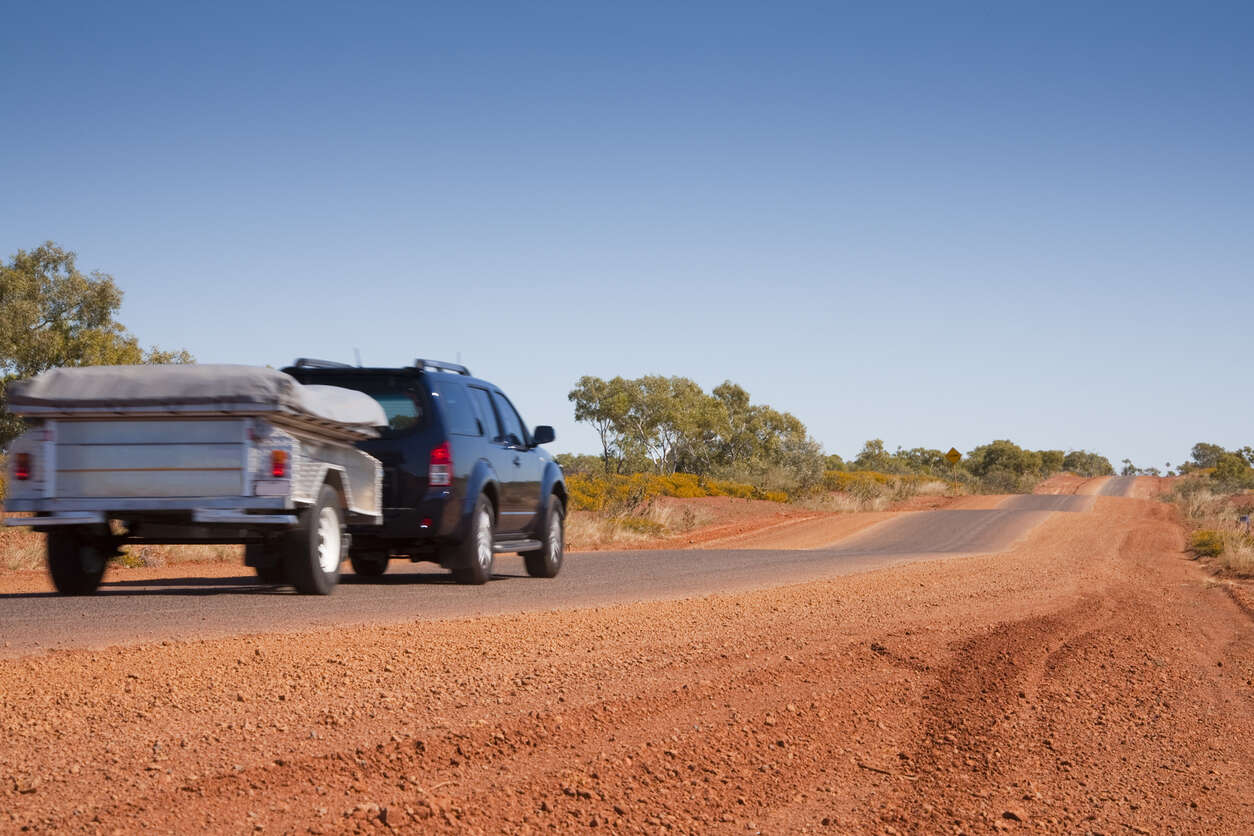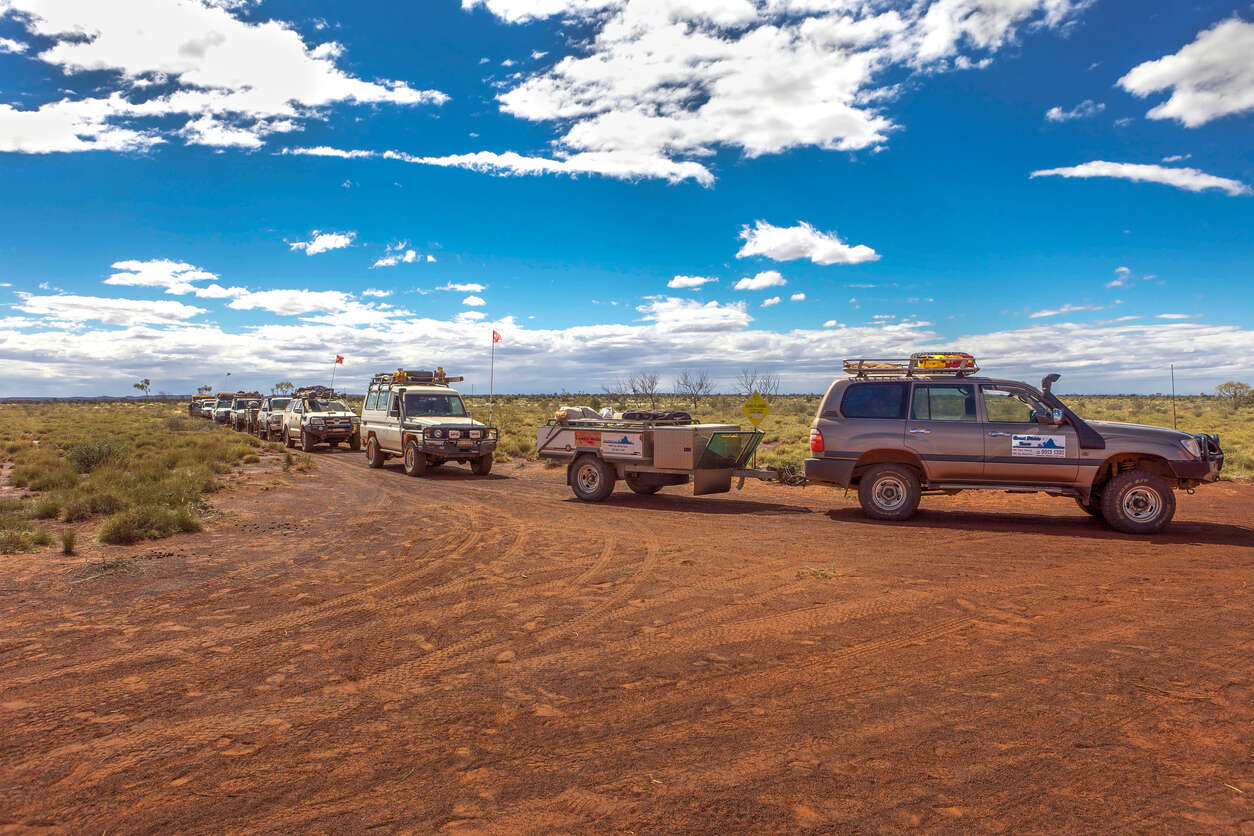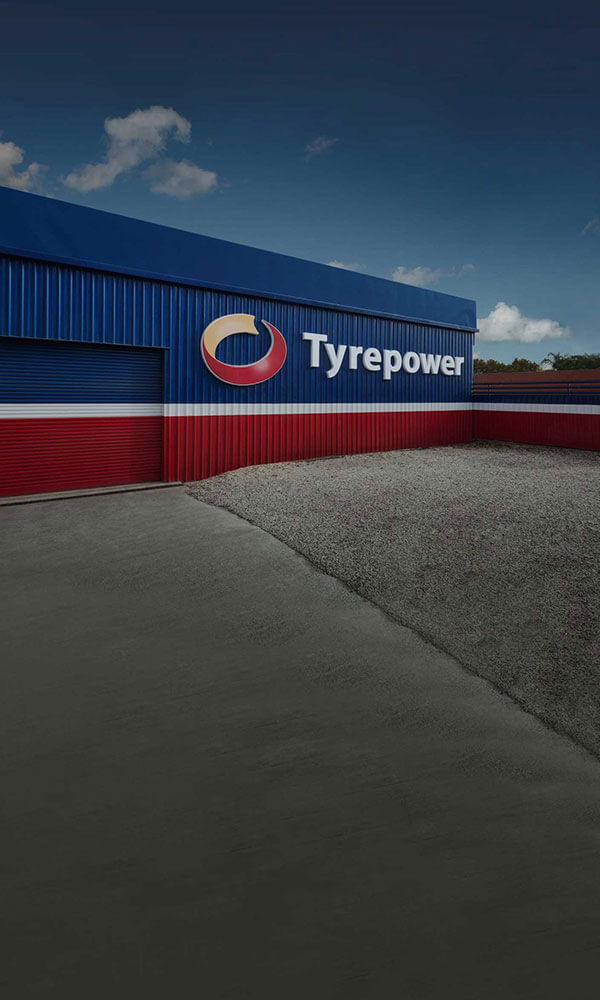Safety Towing a Trailer or Caravan
Towing a trailer or caravan can be a strange or alien task, especially for drivers who are not already experienced in towing and aren’t able to get tips or tricks from family members or friends.
When driving with a trailer, it’s essential to think about your driving style, and remember that while your vehicle can legally tow that much, often the handling, performance and braking abilities will be significantly affected.
Ten Top Towing Tips with Tyrepower!
If you’re unfamiliar with towing and are looking to avoid common pitfalls, read on for expert advice and tips from Australia's largest independent tyre retailer!
1: Make sure you have the right equipment:
Firstly, never tow more than your vehicle is capable of. If you have a small to medium size passenger sedan, it would be foolish to try and tow a loaded caravan or a loaded car trailer. Vehicles like this are more suited to a small box trailer to move household appliances or garden rubbish.
Larger SUVs and utility vehicles such as 4WDs and vans often have heavier towing capacities, and longer wheelbases, resulting in much more stable towing.
If you’re looking for a new tow vehicle, ensure you get one with enough capacity to suit what you’re towing. Combine the right tow vehicle, trailer or caravan, and importantly, the hitch for the job.
In any case, the tow vehicle should have enough power and capacity to safely tow the trailer or caravan, and the hitch should be properly rated and installed.
Remember that towing anything at all places a vehicle under extra strain, and it’s not uncommon under some towing conditions for vehicles to overheat or get hotter than normal. Keep an eye on your temperature gauges and pull over to let things cool down if you see anything unusual.
So you’ve got your tow vehicle with trailer attached, double-checked your safety chain (or chains), and connected your trailer plug, what’s next?
2: Adjust your driving style:
Attaching a trailer has the potential to double your weight going down the road and more than double your length, with some double and triple-axle caravans exceeding even that.
Whenever you’re driving, you should always be thinking ahead, whether it’s to the next intersection or your next turn, but while towing or driving a heavier combination, you need to think much further ahead. Get into a lane you need earlier than normal.
Taking tight turns with a long trailer or caravan is where a lot of inexperienced drivers come unstuck. When cornering, your trailer will always take the shortest route between two points and will try to ‘cut the corner’, so you’ll have to compensate by taking corners a little wider.
On the subject of cornering, when driving with a trailer, keep an eye out for a phenomenon called ‘swingout’. If you’ve ever seen a bus take a very sharp corner, you’ll notice how the back end of the bus briefly swings out in the opposite direction. Swingout cannot be avoided, but if you try to minimise sharp turns while towing, and be particularly careful navigating tight carparks and fuel station forecourts, you’ll avoid one of the more embarrassing faux pas of towing.

Practice Locally
If you’re unfamiliar with towing, take a few hours one weekend and familiarise yourself with your setup. Practice driving with the trailer or caravan attached to get a feel for the added weight and size. Pay attention to how the setup handles and brakes, and adjust your driving accordingly.
Your vehicle will use a lot more fuel, take much longer to accelerate and brake, and emergency maneuvers such as swerving or hard braking can become much more dangerous.
4: Plan Ahead
Having a trailer attached limits your options when it comes to where you can maneuver your vehicle. Until you’re a towing pro, try and avoid no-through roads or tight car parks where you could get yourself into a bind.
Sometimes with larger vehicle and trailer combinations, you’ll have a much easier time sticking to main roads with wider lanes.
If you’re heading away with family, an excellent tool to have is a pair of cheap hand-held radios so that someone can get out and be a spotter for you. Larger trailers and caravans will leave a semi-trailer-sized blind spot and having instant communication without shouting through an open car window will make things easier, trust us.
5: Take Regular Breaks
More so than regular driving, driving while towing requires extra consideration, concentration, patience and awareness.
This is to say that driving with towing is often more fatiguing and with that in mind, take extra rest stops. Taking extra stops isn’t a bad idea to check your safety chains, tyres, bearings and more.

7: Manage your Weight Distribution
Up until now, a lot of what we’ve mentioned is common sense to a lot of experienced drivers, but here is where things get a bit technical.
When packing your trailer or caravan, or securing loads, it’s crucially important to consider where the weight is being placed, even more so than your tow vehicle. In a perfect world, you want your weight to be even from side to side and ever so slightly forward of centre, towards your tow vehicle.
The weight that a trailer puts down on your tow ball is called the ‘tow ball down weight’ or ‘tongue weight’ in reference to the parts of the trailer that carry that load. In Australia, it is recommended that your tongue weight is approximately 10% of the total trailer mass.
Proper weight distribution is important when towing a trailer or caravan for several reasons. Loading your trailer correctly helps to ensure that the tow vehicle and trailer or caravan are balanced and stable, which can help to reduce the risk of accidents or other issues while driving. Too little tow ball weight can result in trailer sway, a dangerous situation by which a trailer loses control, swaying side to side and threatening to cause a severe accident.
Too much weight on a trailer tow ball can cause light steering, reduced braking effectiveness and the possibility of mechanical damage.
If you want to double-check your tow ball down weight, you can buy specialty scales to measure your tow ball weight from most camping supply stores, but your trailer should have an information plate showing what the tongue weight is when empty.
8: Check your GCM and GVM.
Since we’re discussing payload, let’s take a moment to consider the weight of the whole shebang, tow vehicle, passengers, trailer and the load all combined. Your vehicle has specifications and recommendations relating to vehicle weights and payload capacity that must not be exceeded. You can find your vehicle specifications in your owner's manual, or from your manufacturer.
GVM: Gross Vehicle Mass - Before we even consider a trailer, GVM is the maximum allowable weight of your vehicle, including any accessories, modifications, passengers and payload. The kicker here is that your trailer tongue weight counts against your GVM, so be sure to account for anything on, in or under your vehicle.
GCM: Gross Combination Mass - The total allowable weight of your vehicle, trailer, passengers and payload. Your vehicle weight can be measured with specialist vehicle scales, or at a weighbridge (most waste management facilities have one that you can use if you ask nicely).
9: Don’t Forget Maintenance
Typically, trailers don’t see as much routine use as your tow vehicle does, and all that time sitting around can be hard on your trailer.
Tyres can develop flat spots from sitting too long, wiring can be affected by rodents or water getting into places, bearing seals can become dry and brittle as well as a myriad of other small issues.
A big issue on boat trailers is backing into the water as soon as you pull up at the boat ramp. Allowing your bearings and hubs to cool down before getting them in the water will help avoid water being drawn into the bearings as they cool down. It’s normal for wheel bearings to get warm, but if you ever put the back of your hand on your trailer wheel and it’s too hot to keep touching, get your bearings serviced ASAP.
Every time you connect and reconnect your trailer, do a quick safety check of your lights including indicators, brake lights and park lights. Oftentimes at night, a trailer without functioning lights can be very hard to distinguish amongst other traffic and usually it’s just a quick fix to straighten a connecting pin or clean the trailer wiring connector.
10: Daily Safety Checks
When you’re travelling away from home or heading away with a caravan, take a moment each day to have a quick look at your tyres. Since you’re not in your trailer or caravan while you’re driving, you’re likely not going to hear or feel the signs of tyre trouble until it gets really serious. There are options for tyre pressure monitoring and tyre temperature sensor kits you can purchase to help make this easier.
After you pull up somewhere, take 15 seconds to feel for excessive heat around your hub by touching your wheel, as we mentioned earlier.
Double-check your lights before you leave camp, it just takes a few minutes and can save a lot of frustration on the road from other drivers.
Have an Enjoyable Towing Experience!
Get your trailer tyres inspected at your local Tyrepower where we can assess your tyres for age, condition and more. Did you know that many trailers can even have a wheel alignment performed on them?
Contact Tyrepower today to enquire about tyre checks, wheel alignments, balancing, replacement tyres and more!

